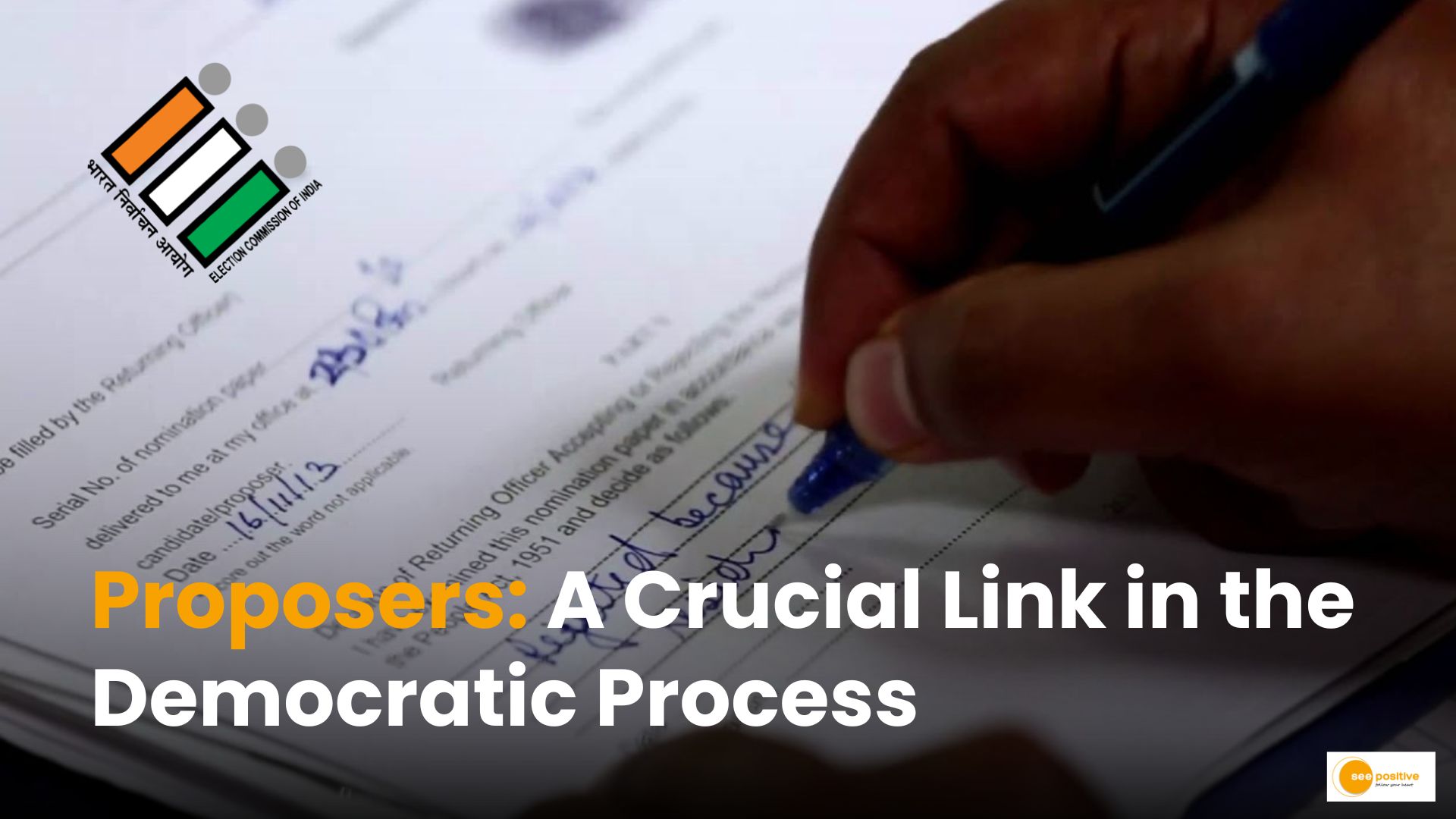In the democratic process of elections, candidates need to fulfill certain formalities to officially contest for a seat. One such essential requirement is the nomination process. Candidates cannot file their nomination without the support of proposers. In this blog, we’ll explore who these proposers are, their role, and the significance of their involvement.
Who are the Proponents?
The term ‘proponent’ refers to individuals who play a crucial role in the nomination process of candidates in elections. These individuals appear before the Returning Officer to formally propose a candidate’s name. Importantly, a proposer must be from the same constituency where the candidate is contesting. If a candidate represents a recognized political party, only one proposer is required. However, candidates from unrecognized or independent parties need at least ten proposers.
What is Their Role?
Proposers have a significant role in the election process. They publicly endorse a candidate, asserting that the candidate is fit to contest from a particular seat. The primary duty of a proposer is to submit the candidate’s name to the Returning Officer. This endorsement is vital for the nomination process, hence the term ‘proposers.’
Who Can Become a Proposer?
Becoming a proposer doesn’t require any specific educational qualifications. A proposer can endorse a candidate even with a thumb impression, highlighting the accessibility of this role. The key requirements for a proposer are residency in the relevant constituency and inclusion in the local voter list. During nomination, proposers must provide complete and accurate information; any discrepancies can lead to the cancellation of the candidate’s nomination.
The Importance of Accurate Proposals
It’s crucial for proposers to ensure all provided information is correct. Any errors or discrepancies can result in the disqualification of the candidate’s nomination, emphasizing the responsibility carried by the proposers.
Key Points About Proposers:
- Local Residents: To become a proposer, one must be a resident of the constituency where the candidate is contesting. This ensures that the proposer has a stake in the local community and is familiar with the candidate’s background.
- Literacy Not Mandatory: Surprisingly, proposers do not need to be highly educated. Even an illiterate person can become a proposer, provided they meet other eligibility criteria.
- Role in Nomination: During the nomination process, the proposer plays a crucial role. They declare that their candidate will contest from that particular seat. This declaration is essential for the candidate’s official nomination.
- Minimum Number of Proposers: The number of proposers required depends on the candidate’s affiliation with a recognized political party. If the candidate is from a recognized party, they need at least one proposer. However, if the candidate is an independent candidate (not affiliated with any party), they require a minimum of ten proposers.
- Local Connection: Proposers must have a local connection to the constituency. They should be registered voters in the area and have their names on the local voting list.
- Verification Process: During nomination, proposers provide their complete details. Any incorrect information can lead to the rejection of the candidate’s nomination.
Conclusion
Proposers play a vital role in the electoral process, ensuring that candidates meet the necessary requirements for nomination. Their involvement reflects the diversity and inclusivity of Indian democracy. So, the next time you hear the term “prapozar,” remember that these individuals are the backbone of our democratic system, supporting candidates as they vie for public office.


